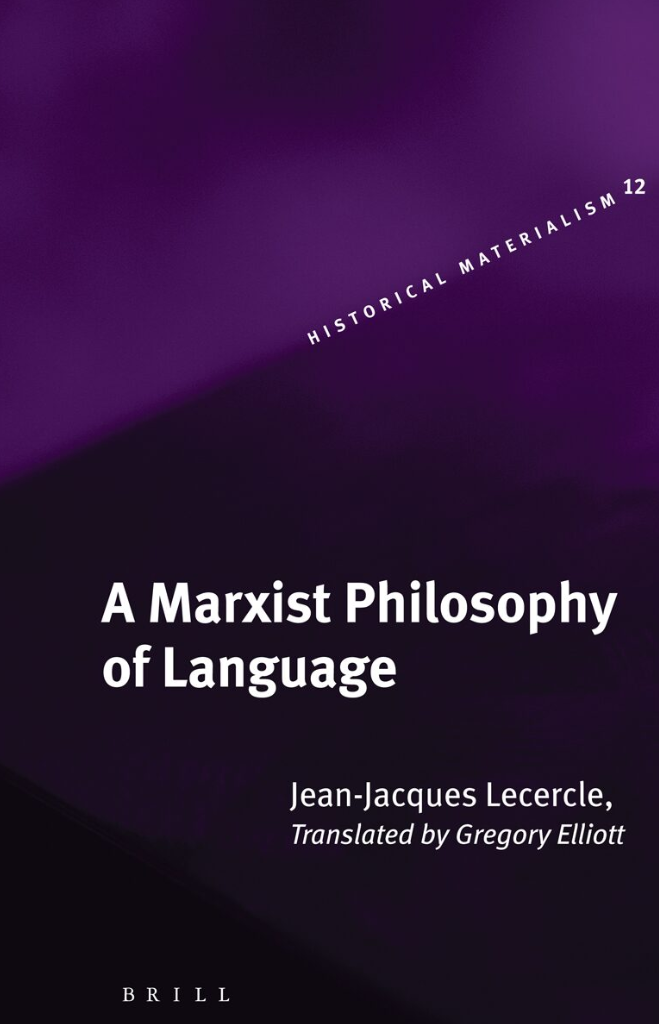Jean-Jacques Lecercle, University of Nanterre. Translated by Gregory Elliott
The purpose of this book is to give a precise meaning to the formula: English is the language of imperialism. Understanding that statement involves a critique of the dominant views of language, both in the field of linguistics (the book has a chapter criticising Chomsky’s research programme) and of the philosophy of language (the book has a chapter assessing Habermas’s philosophy of communicative action).
The book aims at constructing a Marxist philosophy of language, embodying a view of language as a social, historical, material and political phenomenon. Since there has never been a strong tradition of thinking about language in Marxism, the book provides an overview of the question of Marxism in language (from Stalin’s pamphlet to Voloshinov’s book, taking in an essay by Pasolini), and it seeks to construct a number of concepts for a Marxist philosophy of language.
The book belongs to the tradition of Marxist critique of dominant ideologies. It should be particularly useful to those who, in the fields of language study, literature and communication studies, have decided that language is not merely an instrument of communication.
Biographical note
Reviews
Piotr Stalmaszczyk, Marx & Philosophy Review of Books, 17 November 2010
“many excellent points […] this book has to offer”
Peter Ives, Capital & Class 94:162-166
Table of contents
2. Critique of Linguistics
3. Critique of the Philosophy of Language
4. The Marxist Tradition
5. Continuations
6. Propositions (1)
7. Propositions (2)
Conclusion: Contrasting Short Glossaries of Philosophy of Language
References
Index

